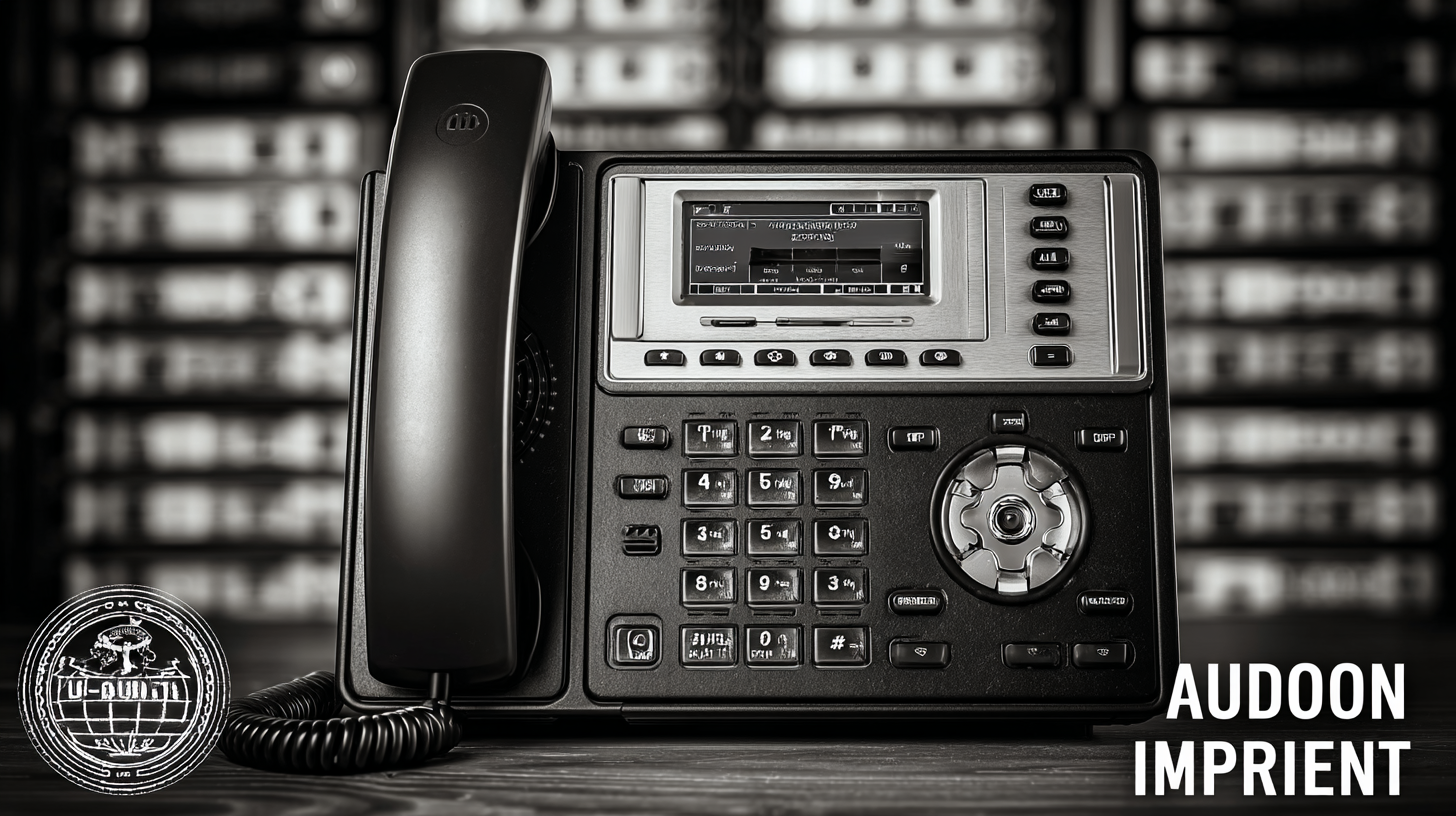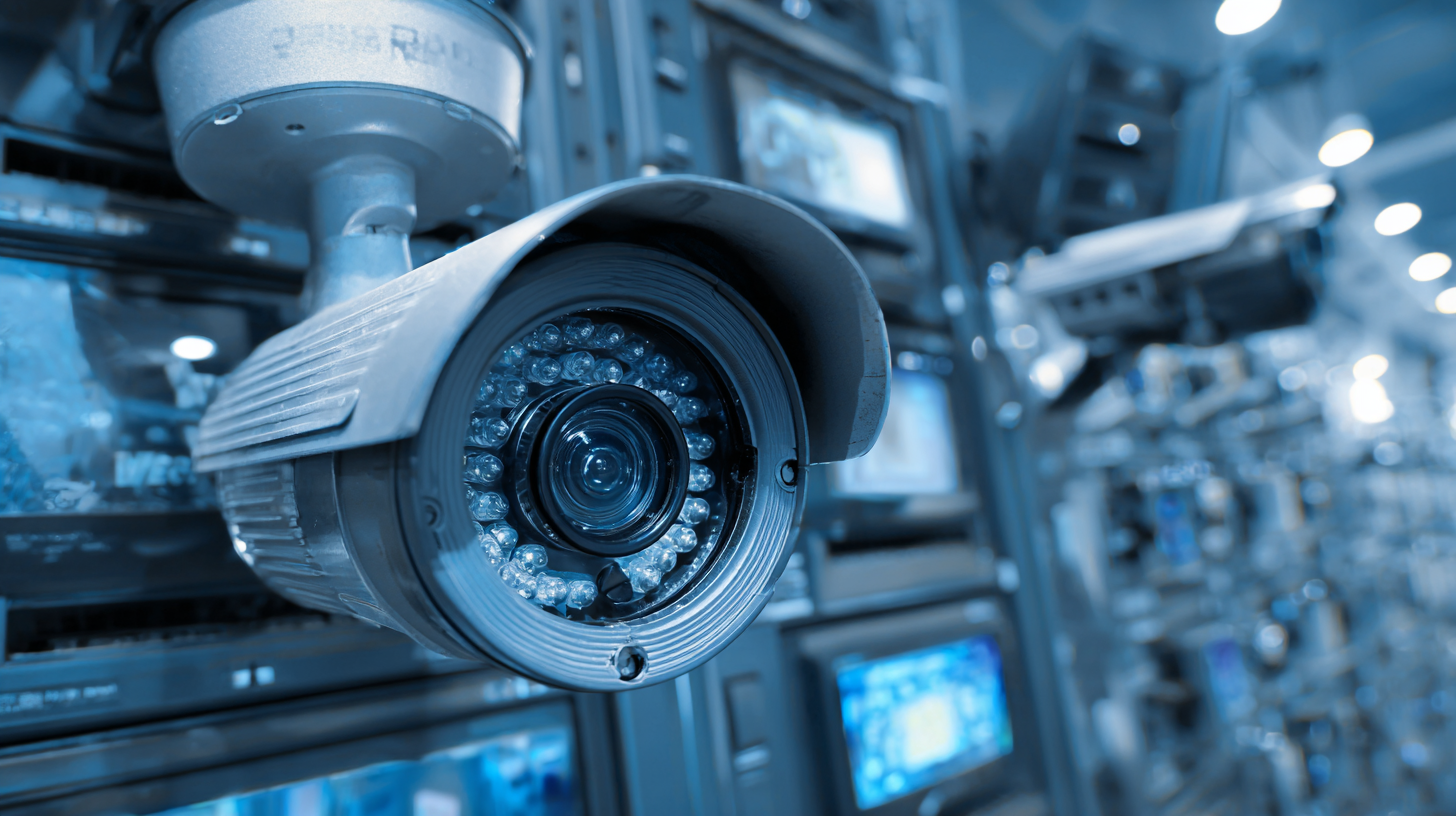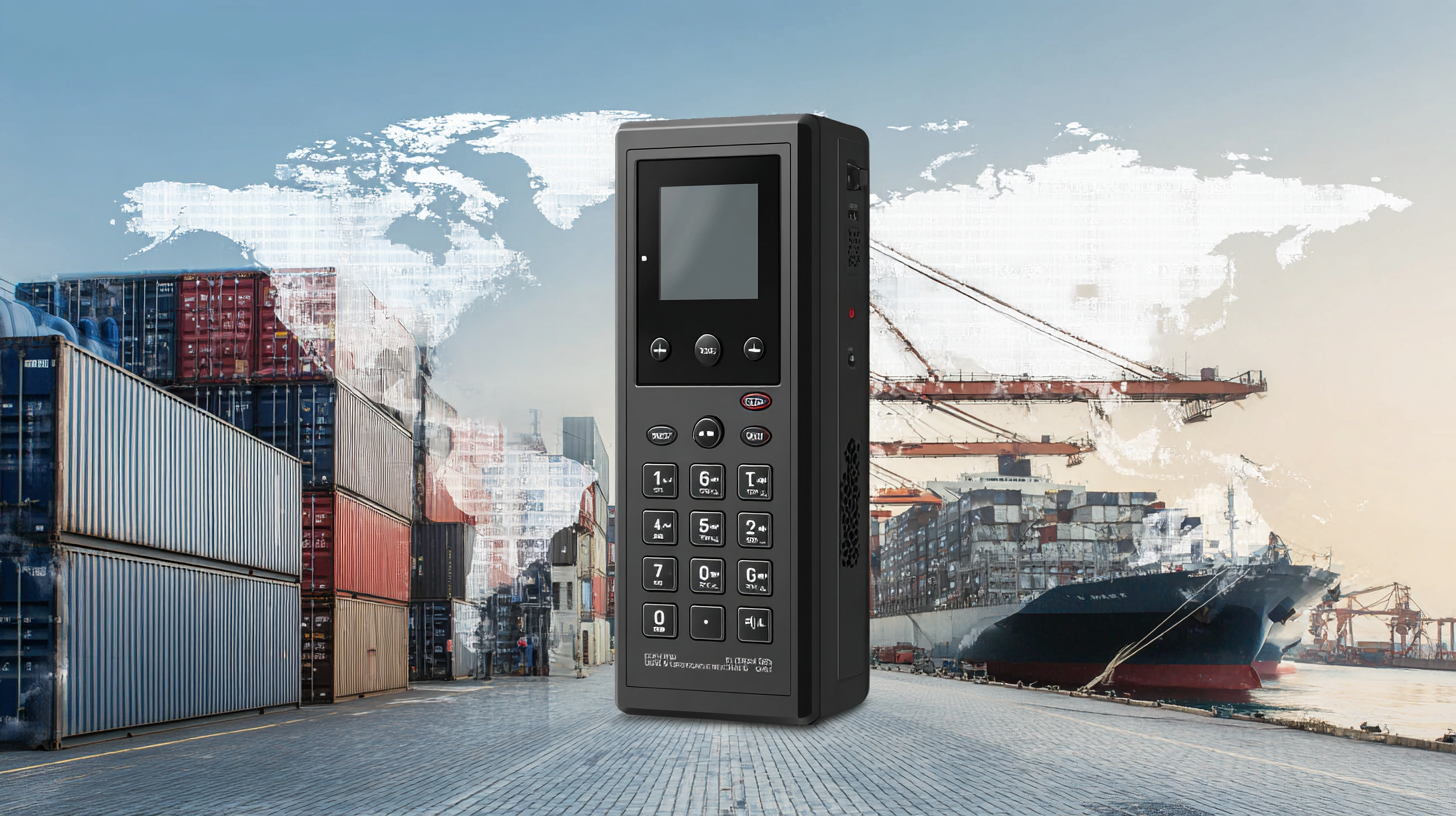In an increasingly interconnected world, the global market for Audio Video Intercom systems has experienced remarkable growth, with a projected CAGR of 14.8% from 2022 to 2027, according to industry reports. This surge in demand highlights the critical importance of securing the necessary import and export certifications for manufacturers aiming to deliver high-quality products to diverse international markets. As the saying goes, "卓越制造,源自中国,服务全球," emphasizing China's pivotal role in producing top-tier technology. Proper certifications not only ensure compliance with regulatory standards but also facilitate smoother entry into foreign markets, build consumer trust, and enhance brand reputation.

As businesses strive to unlock global markets, understanding the intricacies of certification processes will be essential for those in the Audio Video Intercom sector seeking to thrive in this competitive landscape.
Understanding import and export certifications is essential for manufacturers and distributors of audio video intercom systems aiming to tap into global markets. These certifications ensure that products meet international safety and performance standards, which is especially critical in the electronics sector. Since December 20, 2020, the IEC 62368-1 certification has become mandatory for many electrical products that were previously required to have CE marking. This shift emphasizes the need for producers to stay updated on relevant regulations to avoid delays and ensure compliance in international markets.
Moreover, the intricacies involved in classifying electrical equipment for import and export cannot be overlooked. Proper classification is vital for the smooth entry of communication devices, such as audio video intercoms, into target markets. Various regulations and certifications, including those for specific regions like Chile, require that products carry the necessary compliance labels to be deemed acceptable for distribution. As such, businesses must proactively seek assistance in understanding these complex requirements to facilitate the successful export of their products.
When venturing into the global market for audio video intercom products, securing the right certifications is vital. Key certifications such as CE, FCC, and UL ensure that products meet international safety and quality standards. These certifications not only facilitate smoother entry into various markets but also enhance consumer trust and brand reputation. Each certification has its own specific requirements which must be adhered to, making it essential for manufacturers to understand these before exporting their products.
**Tips:** To expedite the certification process, manufacturers should engage with specialized consultants who can provide guidance tailored to their products. Additionally, establishing a robust quality control system can help in ensuring compliance with certification standards right from the beginning. This proactive approach can significantly minimize delays and costs associated with re-certification.
Furthermore, being aware of regional certifications is equally important. For instance, while CE and FCC are critical for the European and American markets, others like C-Tick in Australia or JIS in Japan may apply depending on the target market. Manufacturers should research these requirements meticulously to avoid pitfalls in global trade and ensure their products can compete effectively across various regions.
The audio video intercom market is undergoing a significant transformation, primarily driven by the increasing demand for smart home security solutions. As highlighted in various industry reports, the global video intercom devices market was valued at USD 25.8 billion in 2024, with forecasts indicating a growth to approximately USD 106.5 billion by 2034, demonstrating a robust compound annual growth rate (CAGR) of 15.8%. This surge represents a critical opportunity for businesses looking to expand their reach in global markets. However, entering these markets presents challenges that can only be addressed through compliance with stringent import and export certifications.
Compliance plays a pivotal role in determining market access for audio video intercoms. Regulatory frameworks increasingly mandate that products meet specific safety and performance standards to ensure consumer protection and environmental safety. For instance, organizations pursuing market entry into the European Union must navigate complex compliance landscapes that tackle non-compliant imports while promoting fair market practices. The emphasis on adherence not only fosters a competitive edge but also builds consumer trust, which is essential in a rapidly evolving market where safety and communication efficiency are paramount. The intersection of compliance and market access is critical for manufacturers aiming to unlock opportunities in the thriving audio video intercom sector.

Navigating the certification process to successfully export audio video intercoms involves several key steps that can significantly impact the marketability of your products. According to a recent report by MarketsandMarkets, the global audio video intercom systems market is expected to reach $6.12 billion by 2025, representing a CAGR of 8.8%. This rapid growth underscores the importance of obtaining the necessary import and export certifications to tap into international markets effectively.
The first step in the certification process is understanding the regulatory requirements in your target market. Different countries have various standards and certifications, such as CE for Europe and FCC for the United States. It’s crucial to align your products with these regulations to ensure compliance and to avoid delays in shipping. Furthermore, obtaining certifications such as ISO 9001 can enhance your credibility, facilitating smoother entry into competitive markets.
**Tip:** Communicate early with local certification bodies to clarify any ambiguities in the requirements. Additionally, consider collaborating with experienced third-party testing labs to expedite the certification process while maintaining compliance standards.
Once your product meets the necessary standards, look into obtaining product-specific certifications such as RoHS and REACH, which are increasingly important in various regions. These certifications not only help in compliance but also demonstrate your commitment to sustainability, a growing concern among consumers and businesses alike.
**Tip:** Incorporate sustainability practices in your product design to enhance market appeal. This can also open opportunities for entering regions that prioritize eco-friendly products, allowing for better positioning in the growing global marketplace.
| Certification Type | Description | Required Documents | Processing Time | Validity Period |
|---|---|---|---|---|
| CE Marking | Compliance with European health, safety, and environmental protection standards | Technical file, Declaration of conformity | 2-4 weeks | Indefinite (as long as compliance is maintained) |
| UL Certification | Safety certification for products in the United States | Product specifications, Test reports | 3-6 weeks | Annual renewal required |
| FCC Certification | Compliance with US Federal Communications Commission standards | Test reports, Application form | 2-8 weeks | Indefinite, but must stay in compliance |
| ISO 9001 | International standard for quality management systems | Quality manual, Procedures | 3-12 months | 3 years, needs recertification |
| RoHS Compliance | Restriction of hazardous substances in electrical and electronic equipment | Declaration of conformity, Technical documentation | Varies | Indefinite |
In the rapidly evolving landscape of audio-video (AV) intercom manufacturing, maintaining certification standards is critical not only for compliance but for ensuring product reliability and market competitiveness. According to recent industry reports, approximately 70% of consumers prioritize certified products when making purchasing decisions, indicating that certifications significantly influence marketability. As manufacturers pursue certification, it is essential to adhere to international standards such as ISO 9001 for quality management systems and ISO/IEC 27001 for information security management. These standards not only enhance product quality and safety but also build trust with consumers and stakeholders.
To achieve and maintain certification standards, AV intercom manufacturers must implement best practices throughout their production processes. This includes regular internal audits, continuous training programs for employees, and adopting robust quality control measures at every production stage. A prominent statistic from the Global Manufacturing Report states that companies with strong quality management systems experience a 15% increase in operational efficiency, further underscoring the importance of adhering to certification standards. By prioritizing these practices, manufacturers can improve their product offerings, enhance customer satisfaction, and ultimately gain a competitive edge in the global market.

